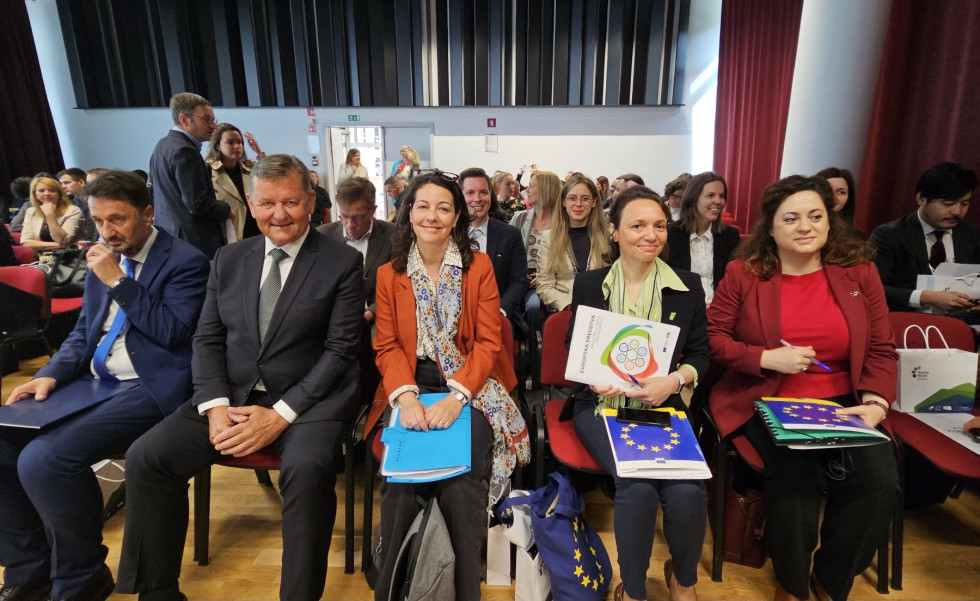Representatives of the European Commission visit the Zasavje region

From left to right: Matjaž Švagan, Mayor of Municipality of Zagorje ob Savi; Dr. Aleksander Jevšek, Minister of Cohesion and Regional Development and Sofia Alves, Director at Directorate-General for Regional and Urban Policy, European Commission | Author Ministry of Cohesion and Regional Development
In his remarks delivered during the visit, minister Jevšek said: ''Slovenia made full use of cohesion policy funding made available for the 2014-2020 period which closed in the end of 2023. With over 9,000 projects delivered in this period, we improved infrastructure, fostered innovation and created new jobs in regions across Slovenia. We also strengthened social inclusion, supported education and training and contributed to the sustainable development of our environment.''
The 2021-2027 programming period kicked off in 2023. The Just Transition fund is a novelty of the 2021-2027 programming period. Two Slovenian coal regions are eligible for funding under this instrument, i.e., Savinjsko-Šaleška and Zasavska. The fund aims to support the economic restructuring and diversification in the areas affected by the exit from coal. Around EUR 250 million is available for both coal regions.
The Ministry of Cohesion and Regional Development issued a funding decision for a call for proposals that is very important for the two coal regions. The call will support the economic restructuring in both coal regions and will be published by the Ministry of the Economy, Tourism and Sport on 24 May 2024. The call will make a total of EUR 68.7 million available from the Just Transition Fund; EUR 26.2 million will be earmarked for the Zasavska region and EUR 42.5 million for the Savinjsko-Šaleška region.
Ms Alves underlined that the European Union fully recognises the challenges facing EU regions amid efforts to achieve the green transition. ''That is why we set up the Just Transition Fund with an overall budget of EUR 19.2 billion. We wanted to give an extra boost to the economic restructuring, reskilling and upskilling while fostering clean energy and industry. Slovenia will receive over EUR 258 million for the Zasavska and Savinjsko-Šaleška regions.'' She emphasised that the entire transition process must build on cooperation and trust. Stakeholders in both coal regions got the chance to propose key projects underlying the shift to climate neutrality and look into the projects with the Ministry of Cohesion and Regional Development that manages this process.
Ms Alves also mentioned the Centre for Development, Demonstration and Training in Zero Carbon Technologies, a project included in the list of operations of strategic importance. The project aims to provide a cutting-edge research centre at the location of the new research department of the National Institute of Chemistry.
As part of the visit, the two delegations also stopped at the Centre for Development, Demonstration and Training in Zero Carbon Technologies and learned about the work of the Zasavje Just Transition Centre and the ongoing projects.

